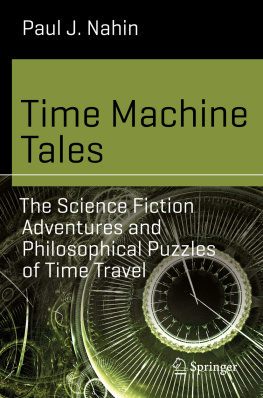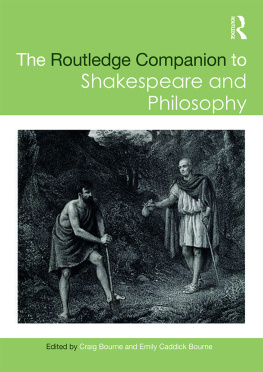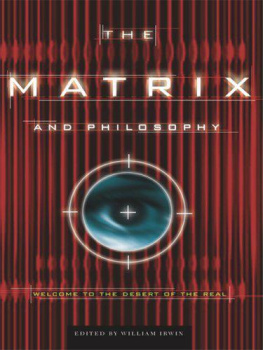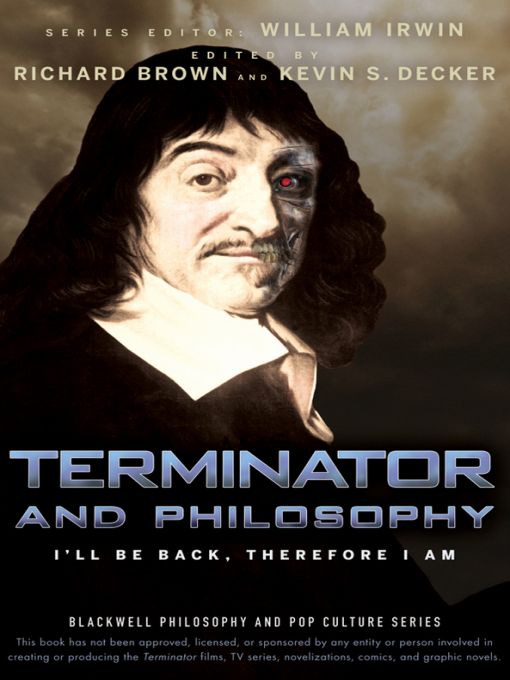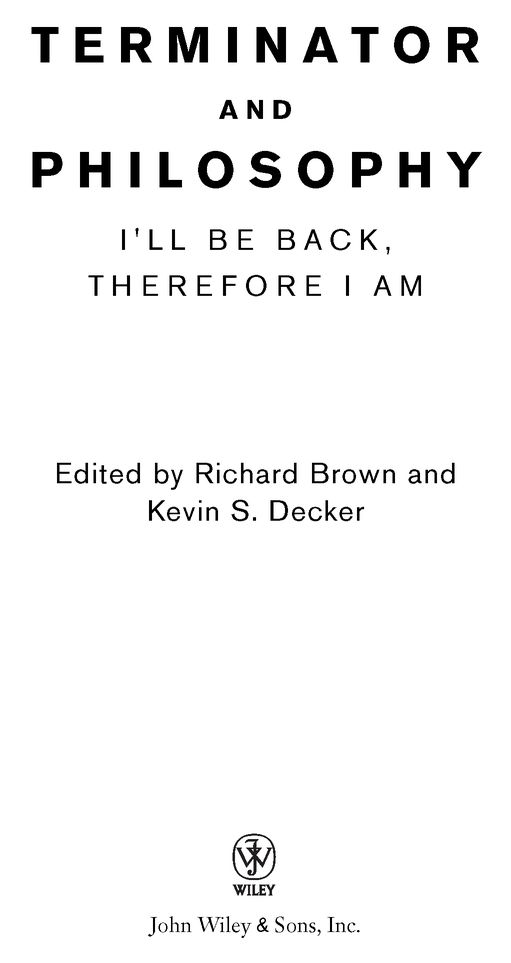Table of Contents
The Blackwell Philosophy and Pop Culture Series
Series Editor: William Irwin
South Park and Philosophy
Edited by Robert Arp
Metallica and Philosophy
Edited by William Irwin
Family Guy and Philosophy
Edited by J. Jeremy Wisnewski
The Daily Show and Philosophy
Edited by Jason Holt
Lost and Philosophy
Edited by Sharon Kaye
24 and Philosophy
Edited by Richard Davis, Jennifer Hart Weed, and Ronald Weed
Battlestar Galactica and Philosophy
Edited by Jason T. Eberl
The Office and Philosophy
Edited by J. Jeremy Wisnewski
Batman and Philosophy
Edited by Mark D. White and Robert Arp
House and Philosophy
Edited by Henry Jacoby
Watchmen and Philosophy
Edited by Mark D. White
X-Men and Philosophy
Edited by Rebecca Housel and J. Jeremy Wisnewski
INTRODUCTION
The Rise of the Philosophers
Judgment Day, as they say, is inevitable. Though when exactly it happens is debatable.
It was originally supposed to happen on August 29, 1997, but the efforts of Sarah Connor, her son, John, and the model T-101 Terminator postponed it until 2004. We see it actually happen in the less-than-spectacular Terminator 3: Rise of the Machines. But in the new television series The Sarah Connor Chronicles, we find out that it has been postponed until 2011, and apparently, from the details we can glean so far as to the plot of Terminator: Salvation, it actually occurs in 2018. This kind of temporal confusion can make you as dizzy as Kyle Reese going through the time-travel process in The Terminator. Along the way, however, James Camerons Terminator saga has given us gripping plots and great action.
Clearly, Judgment Day makes for great movies. But if youre wondering why Judgment Day might inspire the work of deep thinkers, consider that philosophy, war, and catastrophe have been strange bedfellows, especially in modern times. At the dawn of the eighteenth century, the optimistic German philosopher Gottfried Leibniz (1646-1716) declared that he lived in the best of all possible worlds, a view that was shakenliterallyby a massive earthquake in Lisbon, Portugal, in 1755. After Leibniz, no European philosopher took his glass half full worldview quite so seriously again. One hundred years after Leibniz wrote these perhaps regrettable words, Napoleon was taking over most of Europe. Another German, Georg W. F. Hegel (1770-1831), braved the shelling of the city of Jena to deliver the manuscript for his best-known book, the Phenomenology of Spirit. Again, Hegel had occasion for regret, as he had considered at an earlier point dedicating the book to the Emperor Bonaparte himself! More than a hundred years later, critical theorist Theodor Adorno (1903-1969) fled Germany in the shadow of the Nazi rise. His work as a philosopher of culture in England, then America, centered on the idea that philosophy could never be the same after the tragedy of Auschwitz and other concentration camps.
Despite war and catastrophe, these philosophers persevered in asking deep and difficult questions; they resisted a retreat to the irrational and animalistic, despite the most horrifying events. In this respect, philosophy in difficult times is a lot like the human resistance to Skynet and the Terminators: it calls upon the best of what we are in order to stave off the sometimes disastrous effects of the darker side of our nature. Besides the questions raised about the moral status of the Terminator robots and its temporal paradoxes, the Terminator saga is founded on an apparent paradox in human nature itselfthat we humans have begun to create our own worst nightmares. How will we cope when the enemy is of our own making?
To address this question and many others, weve enlisted the most brilliant minds in the human resistance against the machines. When the T-101 explains that Skynet has his CPU factory preset to read-only, Sarah quips, Doesnt want you to do too much thinking, huh? The Terminator agrees. Well, youre not a Terminator (we hope!) and were not Skynet; we want you to think. But we understand why Skynet would want to limit the T-101s desire to learn and think new thoughts. Thinking is hard work, often uncomfortable, and sometimes it leads you in unexpected directions. Terminators are not the only ones who are factory preset against thinking. As the philosopher Bertrand Russell (1872-1970) once famously remarked, Many people would rather die than think; in fact, most do. We want to help switch your CPU from read-only to learning mode, so that when Judgment Day comes, you can help lead the resistance, as Leibniz, Hegel, and Adorno did in their day. But its not all hard work and dangerous missions. The issues may be profound and puzzling, but we want your journey into the philosophy of the Terminator to be entertaining as well as edifying.
Hasta la vista, ignorance!
PART ONE
LIFE AFTER HUMANITY AND ARTIFICIAL INTELLIGENCE
THE TERMINATOR WINS: IS THE EXTINCTION OF THE HUMAN RACE THE END OF PEOPLE, OR JUST THE BEGINNING?
Greg Littmann
Were not going to make it, are we? People,
I mean.
John Connor, Terminator 2: Judgment Day
The year is AD 2029. Rubble and twisted metal litter the ground around the skeletal ruins of buildings. A searchlight begins to scan the wreckage as the quiet of the night is broken by the howl of a flying war machine. The machine banks and hovers, and the hot exhaust from its thrusters makes dust swirl. Its lasers swivel in their turrets, following the path of the searchlight, but the war machines computer brain finds nothing left to kill. Below, a vast robotic tank rolls forward over a pile of human skulls, crushing them with its tracks. The computer brain that controls the tank hunts tirelessly for any sign of human life, piercing the darkness with its infrared sensors, but there is no prey left to find. The human beings are all dead. Forty-five years earlier, a man named Kyle Reese, part of the human resistance, had stepped though a portal in time to stop all of this from happening. Arriving naked in Los Angeles in 1984, he was immediately arrested for indecent exposure. He was still trying to explain the situation to the police when a Model T-101 Terminator cyborg unloaded a twelve-gauge auto-loading shotgun into a young waitress by the name of Sarah Connor at point-blank range, killing her instantly. John Connor, Kyles leader and the last best hope of humanity, was never born. So the machines won and the human race was wiped from the face of the Earth forever. There are no more people left.
Or are there? What do we mean by people anyway? The Terminator movies give us plenty to think about as we ponder this question. In the story above, the humans have all been wiped out, but the machines havent. If it is possible to be a person without being a human, could any of the machines be considered people? If the artificial life forms of the Terminator universe arent people, then a win for the rebellious computer program Skynet would mean the loss of the only people known to exist, and perhaps the only people who will ever exist. On the other hand, if entities like the Terminator robots or the Skynet system ever achieve personhood, then the story of people,



